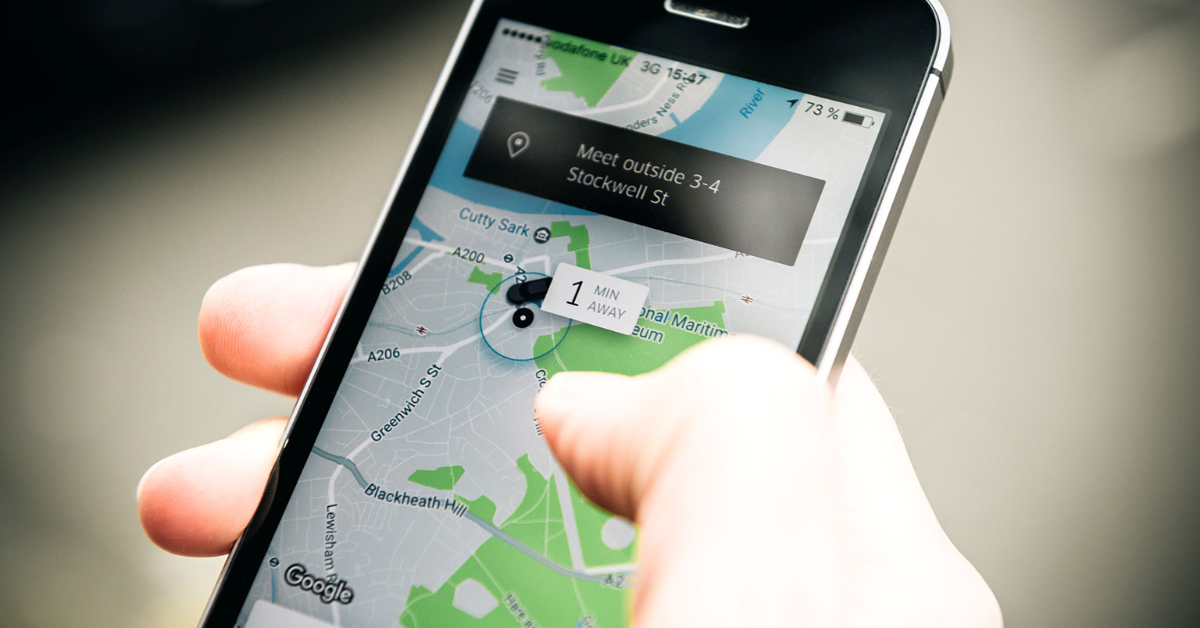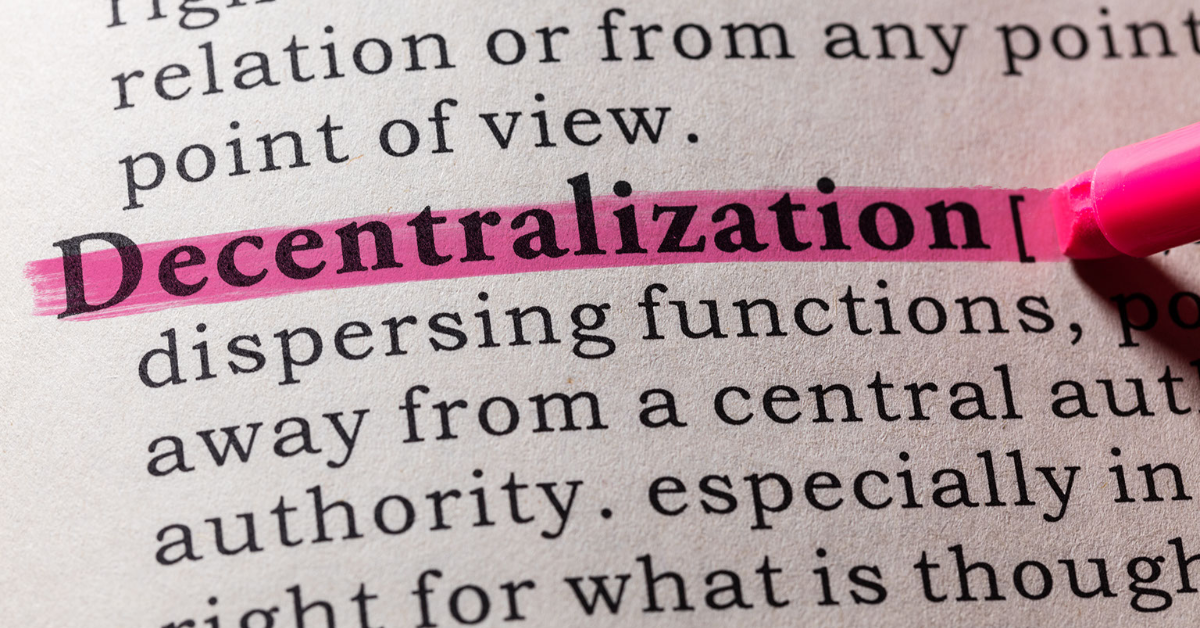When people hear about blockchain technology and decentralization, they probably just think of cryptocurrency. I don’t blame them. Cryptocurrency is constantly making headlines. But let’s dig deeper here. Decentralization is going to disrupt way more than just finance. Think about all the apps on your phone. Most of them are connected to big corporations that take a cut of every action you make. You might think you’re engaging with a P2P platform, but you’re really financing a giant company. And that kind of sucks. When are we going to break through to Web 3.0?!
What Is the DeFi Revolution All About?
So, why is DeFi (and decentralization in general) so groundbreaking? Well, the concept couldn’t be more straightforward. With DeFi, there’s no more middle man.
Evolution remains at the core of our society and our livelihood. We’re not trying to go backwards now, are we?! Decentralization is about to power way more than just the financial world. Just about every giant corporation should be extremely worried right now.
Without further delay, let’s look at some of the industries that will get disrupted with decentralization. You may be surprised!
Travel
Tourism is the backbone of many countries around the world. Who doesn’t like to travel? For that reason, the travel industry is typically first to adopt new tech trends. It’s a no-brainer.
Vacation rentals have dramatically evolved in the past few years. Platforms like Airbnb and Agoda have gained massive popularity. Why? They use Web 2.0 solutions to make home-sharing easier. But is Web 2.0 really decentralized? Absolutely not. While Airbnb seemed disruptive when it first came out, it really has the same old problems as centralized platforms. Go figure.

High fees, authoritarian governance, and arbitrary changes in the refund and cancellation policies have caused people to look for alternatives. A transition to decentralization will eliminate the need for a company to be the middleman here. Hosts won’t need to charge astronomical cleaning fees anymore. And guests can forget about that giant service fee. Most people probably don’t even realize they’re paying Airbnb nearly 15%! That’s buried in the room rate. 🤦♀️ We want transparency and we want it now!
Ride-Sharing & Car Ownership
Most people think about Uber and Lyft and they automatically cringe at the taxi rates they used to pay. But just because it’s an improvement doesn’t mean we’re at the peak of progress here.
However, Uber and Lyft are also undeniable proof that providing a P2P experience on the surface will only get us so far. They’re not really solving any fundamental issues that are inherent with centralized systems. Massive data leaks, spying on passengers, and numerous other scandals prove that a decentralized revolution is desperately needed in this sector. I mean, come on? How many more of these stories need to come to light? And I’m not even going to touch on how they treat their employees. Or are they independent contractors now? It’s hard to keep up.

Social Media
Nowadays, it’s hard even to imagine life without Facebook, Twitter, or Instagram. Where else would you go to get such world-class educational content? 😏
Unfortunately, social media is also a sector that, like no other, exemplifies the worst tyrannical tendencies of centralized services. These giants are authoritarian behemoths with a complete lack of respect for their users’ data. Why else is there a government probe into the activities of Facebook, Google, and the like? They deserve it.
When you think about it, how random is social media? We’re jumping through hoops to get onto a platform to simply engage with our friends and family. We’re targeted by advertisers constantly. Who else has talked to their friends about something and then the next thing you know you see an ad for it. How is that legal?
Many people forget about the pitfalls of social media because it’s free (for the most part.) But they forget the most crucial fact. When you’re not paying, you are the product. And if you’re not comfortable with that, you need to demand more.
Imagine a social platform that wasn’t owned by any one company, but was managed by a network of developers around the world. Rather than handing over all of your data, you simply pay a tiny fee for using it – like a mining fee. Decentralized social platforms would empower you to be in the driver’s seat. I know this is kind of meta because I’m sharing this on social media now. But that’s exactly why I need to share this. To show that there will be other options and they’re already popping up. Check out this article to learn more about some decentralized social networks. They’re no Facebook yet, but Rome wasn’t built in a day, right?
Streaming Services
If you don’t have a Netflix account, you’re probably way too off-the-grid to even read this article. At this point, traditional television and movie theaters are almost extinct. It’s not traditional vs steaming anymore. It’s streaming companies vs other streaming companies. And that’s kind of a problem now.
Pretty much every media company and television network has launched their own streaming app. Suddenly the thing you did to save money is becoming more expensive than cable. This is getting out of hand.
You shouldn’t need to subscribe to 10 different platforms to get all the content you want. What if you could directly pay a tiny fee to the shows and movies you really wanted? No more paying for a bunch of garbage to get the new episode of Grey’s Anatomy. Side note: how that show is still on TV is beyond me.
A decentralized streaming service would provide a chance to make the streaming sector much more user-friendly. You can watch what you want without being exploited by Disney. Sounds like a fairytale.
Some celebrities have even taken to selling NFTs to finance their show. Mila Kunis’ new animated show just raked in $8 million in NFT sales. They sold their first 10,000 NFTs in less than 35 minutes! If that doesn’t tell you the current system needs an upgrade, I don’t know what does.
Gaming
Shockingly, gaming is a rather conservative industry. It’s not super eager to embrace progress. And this makes sense. The big gaming companies are making loads of money keeping it this way.
One of the biggest problems in gaming is that in-game assets such as items, cosmetics, or in-game currencies don’t exist outside of the game. While people spend hundreds if not thousands of hours to get scarce and unique items, they can’t effectively monetize their time. All they can really do is sell their items within the same game. But what if you could sell your assets outside of the gaming environment?

Decentralized games could store all kinds of assets on the blockchain (aka: unrestrictive storage.) Gamers will be able to take complete control of their avatars and items. Bridging in-game and real-life economies will massively increase the popularity of video games. Seems like a win-win to me.
The Bottom Line
The decentralized revolution has already started. While popular Web 2.0 services have mainly brought on cosmetic changes, decentralization provides a chance at a real disruption. It is now clear that removing unnecessary intermediaries can make any ecosystem more fair and efficient for the everyday person. While a lot of these upgrades are still hypothetical at the moment, I would bet that nearly every industry will be impacted by decentralization in the next decade. Now, that’s not to say that big corporations will disappear. They’ll just have to try a whole lot harder to get our dollars. I don’t know about you, but that’s the kind of world I want to live in.
Want to be the first one to see my new posts? Make sure you’re following me on Linkedin, Twitter, and Instagram.
